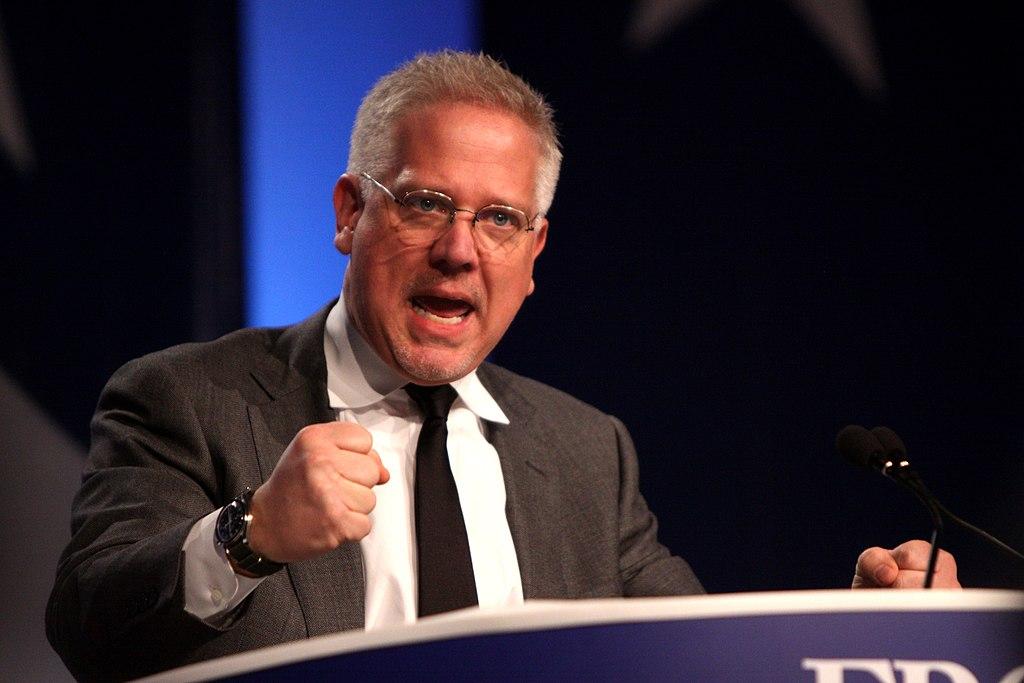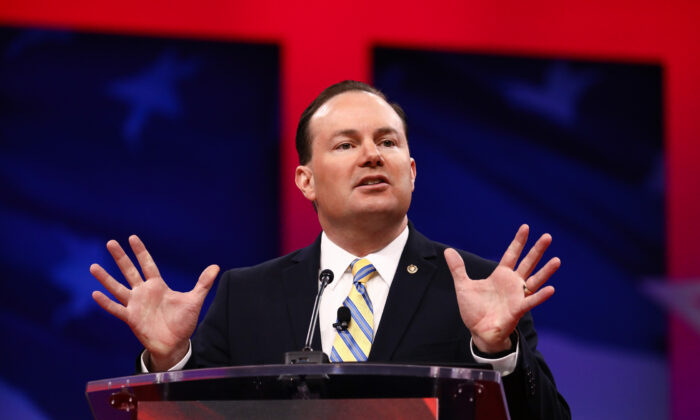A social media post on a related discussion had attracted more than 4.7 million views, 25,000 reposts, and more than 4,000 comments as of Monday night.
U.S. Sen. Mike Lee (R-Utah) didn’t expect to cause a national ruckus when he casually said during a Nov. 8 late-night conversation with Turning Point USA’s Charlie Kirk that Vice President-elect JD Vance could also be the new Senate Majority Leader.
A few hours later, Kirk shared Lee’s comment with media entrepreneur Glenn Beck on his BlazeTV program and pointed to an obscure precedent for the idea from the nation’s earliest days.
“John Adams presided over the U.S. Senate as Senate Majority Leader 200 years ago as Vice President of the United States. I think JD Vance should be President of the Senate and become Senate Majority Leader. Sen. Mike Lee came up with this in a 1 a.m. phone call from him last night, and he had me at ‘hello,’” Kirk told Beck.
Upon hearing the idea, Beck said, “I am in love with that, I am in love with that. I said the other day I didn’t know if that was even possible with JD, but he would be fantastic.”
Beck wrote in a Nov. 8 post on X with a clip of his exchange with Kirk that “this would COMPLETELY change things in Washington.” As of late Monday, the clip had attracted more than 4.7 million views, 25,000 reposts, and more than 4,000 comments.

Lee later clarified that he wasn’t suggesting that the vice president could occupy a second elected position.
“What I was trying to say is not that he would be the elected majority leader per se, but that any vice president—especially one of the same party as controls the Senate—could end up as the de facto leader of the majority party,” Lee told The Epoch Times in a Nov. 9 interview as the national hubbub continued.
The U.S. Constitution assigns to vice president the role of the Senate’s presiding officer.
Lee’s point that Vance could possibly function as the de facto GOP Senate leader while also fulfilling his constitutional duties as the upper chamber’s presiding officer is permissible under the Constitution, according to Hans von Spakovsky of the conservative Heritage Foundation.
“An assertive vice president has the ability to exert a great deal of influence over what is going on in the Senate if his party is the majority and he has the cooperation and assistance of the nominal majority leader. But it is a matter of internal politics within the GOP caucus as to whether a vice president can function as the effective majority leader,” von Spakovsky told The Epoch Times.
If Vance, or any other sitting vice president, were to succeed, he or she, given their insider “access to information on what the various executive branch departments are doing … could be a much more powerful majority leader than a senator who is a majority leader,” von Spakovsky said.
The presiding officer’s main duty is serving as chairman whenever the Senate is in session and casting a tie-breaking vote. Outgoing Vice President Kamala Harris, who lost to Trump last week, holds the record for casting the most tie-breakers in American history.
Senate rules also stipulate that, as long as he or she is literally in the chair, he or she controls the floor of the Senate and, working with a cooperative majority, can effectively determine what the upper chamber does or does not do.
“It wouldn’t be particularly fun if the vice president were inclined to do that because it would include a lot of tedium, but I still think there is a lot that could be gained from it,” Lee told The Epoch Times.

Lee’s observation came at the perfect time to attract national attention because former President Donald Trump and his running mate Vance won the Nov. 5 presidential election, and Republicans, taking more than 50 Senate seats, will soon regain control of the Senate when the 119th Congress convenes on Jan. 3, 2025.
This Wednesday, the upper chamber’s GOP members will meet behind closed doors in the U.S. Capitol to elect by secret ballot the successor to Senate Majority Leader Mitch McConnell (R-Ky.), the longest-serving congressional party leader in modern American history.
Sens. Rick Scott of Florida, John Cornyn of Texas, and John Thune of South Dakota are officially competing to succeed McConnell, who has led the upper chamber’s GOP conference since 2007, as Senate Majority or Minority Leader.
Scott challenged McConnell for the position two years ago but garnered only 11 votes. Cornyn was McConnell’s deputy during President Donald Trump’s first term in the White House, while Thune has been McConnell’s deputy during President Joe Biden’s tenure in the Oval Office.
All three of the candidates seeking to succeed McConnell have publicly pledged to support Trump’s legislative agenda, although Thune had said the incoming chief executive should “stay out” of the race for majority leader. Trump hasn’t endorsed anyone for the position.

Lee will host a Candidate Forum on Tuesday evening to give Cornyn, Scott, and Thune the opportunity to make their case to the attending lawmakers. With three candidates, the first balloting on Wednesday will eliminate one of them, with the winner being determined in a second balloting on the two remaining candidates.
Vance resigned his Ohio Senate seat to make way for his successor, Republican Senator-elect Bernie Moreno, to take the oath of office when the new Congress convenes. The vice president-elect will have served only two years of the six-year Senate term to which he was elected in 2022.
Trump and Vance will be inaugurated on Jan. 20.

